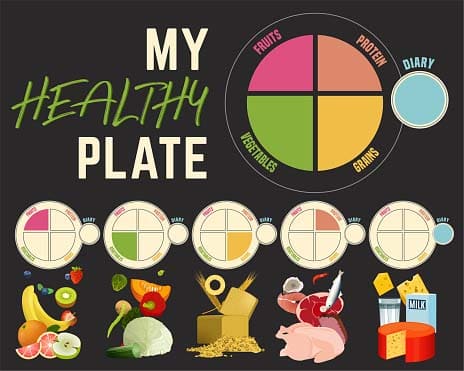Suffering From Gestational Diabetes? Ensure Healthy & Hassle-Free Pregnancy With These Tips!
Pregnancy, the most significant phase in almost every woman’s life, makes her undergo certain health-related challenges. One of the most perplexing conditions that can strike any woman during pregnancy is Gestational Diabetes (diabetes that develops during pregnancy). The condition usually develops in the late second trimester, between weeks 24 and 28. If left unattended, it can cause harm to the fetus as well as to the mother.
The good news is that various studies across the world have acclaimed that one can carry a healthy pregnancy even with gestational diabetes by maintaining a healthy lifestyle throughout your perinatal period. If you’ve just been diagnosed and aren’t sure about what all lifestyle changes are required, here’s what you need to know:
Perfect your portion size

Eat five meals on a regular basis, which means three meals and two healthy snacks for mid-meal. Try to perfect your portion with 1 piece of fruit, such as a banana or an apple, or a handful of grapes, or a handful of dried fruit for your mid-meal. Also, avoid long gaps in between your meals. This will not only manage your blood glucose levels but also prevent too much weight gain during pregnancy.
Be careful with your carb intake

All carbohydrates have an impact on our blood glucose levels, so be careful with the amount of carbs you eat. Ask your dietitian how to count carbohydrates. Choose nutritious carbohydrate-containing foods, such as wholegrain starchy foods, pulses, fruits, and vegetables. And focus on cutting on the intake of highly processed carbohydrate foods, such as white bread, refined cereals, and ready-to-eat meals as these contain added fat, salt, and sugar.
Check your blood sugar levels frequently

To keep blood sugar under control, it is important to monitor blood glucose levels up to 4 times a day. First-time, monitor it early morning before eating anything (for fasting level), then take other three readings one hour after each course meal (i.e. breakfast, lunch, and dinner). Your health care provider will provide you with a healthy target range for blood glucose level. Your goal should be to keep your glucose level within this range.
Limit sugary and highly-processed foods

Fried foods, cakes, cookies, pastries, and candies should be avoided. These foods are rich in carbohydrates and fats. Consumption of sugar-sweetened beverages, regular sodas or any sugary food should be avoided.
Follow an exercise regime

Exercising both prior and during pregnancy helps women manage gestational diabetes. Typically, it is recommended to exercise at least 5 days a week for the duration of at least 15 to 30 minutes. Include walking into your daily fitness routine and consult your doctor for the right guidance on other exercises you can practice.
Take your medicines as prescribed

Even after practicing the suggested lifestyle and diet modification if you fail to control your blood sugar levels, then revisit your doctor soon. S/he may prescribe you some oral medications or insulin injections for yours and your unborn baby’s safety. Make sure to take the meds as prescribed!
Women diagnosed with gestational diabetes are at a high risk of getting the condition again in subsequent pregnancies. If you're not feeling well or planning another pregnancy, you'll need to get tested regularly. Listen to your healthcare team and continue your healthy eating plan even after having a baby to ensure better health for yourself and your baby.
For any query related to diabetes, you can consult a Diabetologist at www.healthcaremagic.com
Ask a Specialist
Recent Questions


